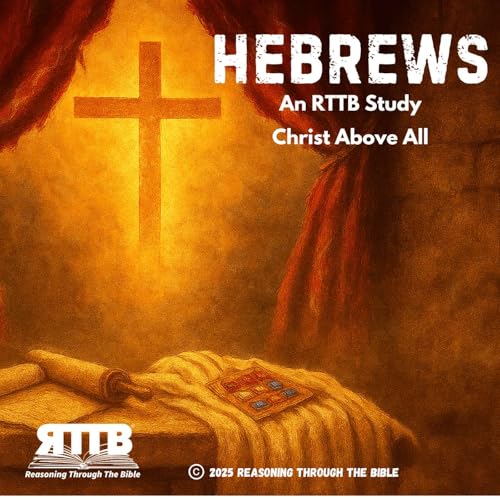
Reasoning Through the Bible
Failed to add items
Add to basket failed.
Add to Wish List failed.
Remove from Wish List failed.
Follow podcast failed
Unfollow podcast failed
-
Narrated by:
About this listen
Taking a cue from Paul, Reasoning Through the Bible is an expository style walk through the Scriptures that tells you what the Bible says. Reviewing both Old and New Testament books, as well as topical subjects, we methodically teach verse by verse, even phrase by phrase.
We have completed many books of the Bible and offer free lesson plans for teachers. If you want to browse our entire library by book or topic, see our website www.ReasoningThroughTheBible.com.
We primarily do expository teaching but also include a good bit of theology and apologetics. Just like Paul on Mars Hill, Christianity must address both the ancient truths and the questions of the people today. Join Glenn and Steve every Monday, Wednesday, and Friday as they reason with you through the Bible.
© 2026 Reasoning Through the Bible-
 30 mins
30 minsFailed to add items
Sorry, we are unable to add the item because your shopping cart is already at capacity.Add to basket failed.
Please try again laterAdd to Wish List failed.
Please try again laterRemove from Wish List failed.
Please try again laterFollow podcast failed
Unfollow podcast failed
-
 31 mins
31 minsFailed to add items
Sorry, we are unable to add the item because your shopping cart is already at capacity.Add to basket failed.
Please try again laterAdd to Wish List failed.
Please try again laterRemove from Wish List failed.
Please try again laterFollow podcast failed
Unfollow podcast failed
-
 48 mins
48 minsFailed to add items
Sorry, we are unable to add the item because your shopping cart is already at capacity.Add to basket failed.
Please try again laterAdd to Wish List failed.
Please try again laterRemove from Wish List failed.
Please try again laterFollow podcast failed
Unfollow podcast failed


